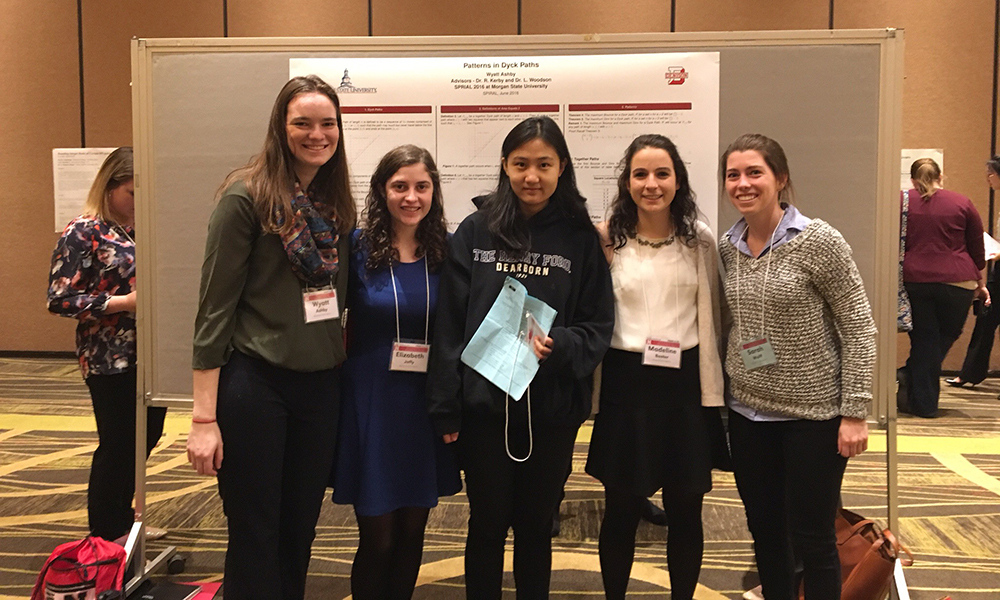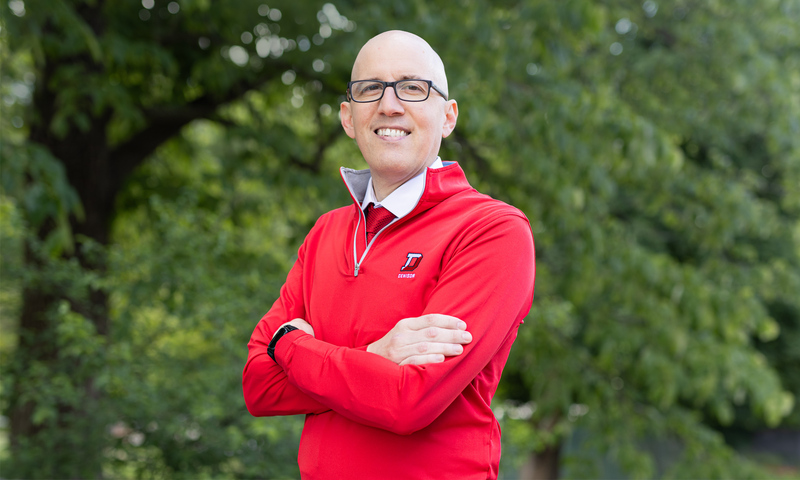Recently, Dr. Sarah Wolff accompanied Wyatt Ashby ’19, Madeline Boster ’18, Elizabeth Jaffy ’19, and Aixin Li ’18 to the Nebraska Conference for Undergraduate Women in Mathematics (NCUWM).
Wyatt shared her work on Dyck Paths that she conducted at an NSF REU. Maddie presented her research on fault tolerance autonomous systems that she conducted with Dr. Tom Bressoud. Aixin discussed her work with Dr. Michael Westmoreland on dual set logics. Despite being unsure what to expect from the weekend, it became evident that NCUWM’s worth surpasses just an opportunity to present research.
Graduate school was a main theme of the weekend. Many of the invited women are currently working toward PHDs or have already completed a program. Guests were from all stages of life. One of the highlights was hearing two women well into their careers in academia speak. Ami Radunskaya, a professor at Pomona College, and Brooke Shipley, a professor at the University of Illinois at Chicago, shared unique stories of their journeys towards teaching and working on fascinating projects. For example, after playing in the symphony for ten years, Dr. Radunskaya went through undergrad and grad school with a child. She now intertwines her passion for family, math, and music, while working with doctors on cancer treatments.
Throughout the weekend there were also a number of panel discussions. Themes included “Choosing a Mathematics Graduate Program,” “Random Bits of Advice,” and “Careers Using Mathematics.” Participants at the conference asked well-crafted questions that led to thoughtful answers. It was great to hear a more personal side from the women, including funny and non-school stories, while at the same time getting a feel for what the grad school experience is actually like. It became clear that building a community with your peers is vital and that successful women in mathematics live “real lives” too.
Participants at NCUWM also chose from an assortment of breakout sessions to attend based on specific interests. Some examples of sessions included “What you can do with a Bachelor’s Degree” and “Opportunities in Teaching.” These were smaller and discussion based, giving attendees an opportunity for directed conversation with invited guests who had specific knowledge on the various topics. In the session “How to lead a Happier College Life,” Elizabeth learned the importance of having friends who love math and friends who don't. This will allow you to talk about the cool things you are learning with some people, but it will also provide a space where you can step away from math and think about other things which is equally as important to being happy.
Student research presentations were impressive and featured a wide variety of topics. Interacting with these women and hearing their research throughout the weekend was very empowering. The stories, thoughts, and advice shared by the wide spectrum of women were valuable and thought provoking. The conference allowed participants the opportunity to discuss their passion for math, share and gain knowledge, and think about the future. The students left NCUWM not only having presented their research, but with a new perspective and understanding of the many opportunities available with a degree in math.

